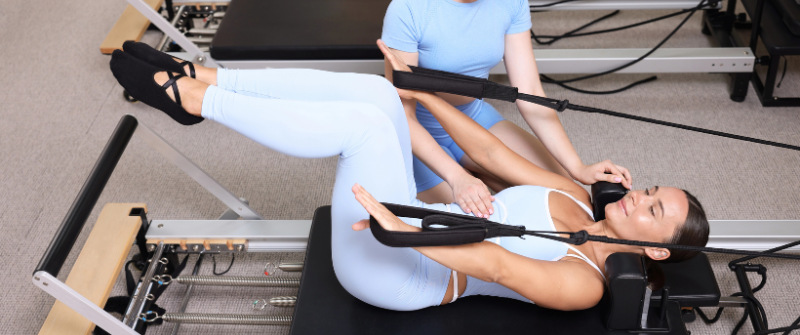
- by NEXO Team
- March 11, 2022
What’s the difference between commercial and private gyms? If you’re trying to decide if it’s in your best interest to operate your fitness business as a commercial or private facility, it helps to have a practical understanding of what both types of gyms have to offer. Take a look at this brief comparison of commercial and private gyms.
Differences Between Commercial and Private Gyms
Commercial gyms have more than one location. These locations may be local or nationwide to reach a wider customer base. than private or smaller, independently owned fitness centers. Some of the biggest gym names in the industry have hundreds of facilities all over the world. In addition to having multiple facilities, commercial facilities tend to be larger and offer more equipment and services to attract and maintain a large customer base. This also makes it easier for them to generate more revenue with less work/effort.
Private gyms, on the other hand, tend to be independent entities. Instead of having multiple places, they may have a single facility. They are not always affiliated with some of the larger or more popular names in the fitness industry. Many of them are considered boutique gyms because of their exclusive services. Though private gyms may not be as well-known as many commercial places, they are still a valuable and critical cornerstone of the fitness industry.

Membership Prices and Revenue
Keep in mind that commercial gyms tend to have higher membership prices. They rely on sales and numbers to increase profits and revenue. Though many big-name gyms tend to have more trainers and equipment, some members don’t necessarily have a better experience. The overall experience for members often takes a back seat to trainers trying to improve their bottom line and earn their bosses’ satisfaction. The chances of customers being sold a service or having to commit to membership for a longer period of time that they don’t need or want are higher than those that come with going to private gyms.
Independently managed gyms often have higher prices. Owners must charge more to meet their overhead expenses and generate revenue. Though many fitness enthusiasts are always in search of fitness centers with the lowest or most competitive prices, that does not equate to quality or a memorable experience. Just like with anything else in this life, price and size aren’t everything. Many people start off going to commercial gyms to take advantage of the prices only to discover they would happily pay more for membership and fewer or similar services from private gyms. Private gyms often provide a better overall experience than some of the larger and more popular alternatives for some members.
Services and Equipment Offered
Commercial gyms tend to offer more services and amenities for their customers. They serve a much broader customer base and must provide activities, services, and offerings that attract and keep their members engaged. By offering pools, spas, saunas, smoothie bars, and other types of desirable services, commercial fitness centers can accommodate their members’ needs and keep them from looking at competitors. Many of which may offer similar services or smaller, private or boutique centers that tend to specialize in different techniques, practices, and services that may be better aligned with member interests and needs.
Private gyms tend to have less equipment and space for members to use. A common reason for this is equipment is expensive and takes up space. Finding the right amount of space in a desirable location can be challenging and expensive. Independent businesses do not always have access to the financial resources or brand sponsorships that commercial gyms have for them to acquire more space or equipment, especially during the startup stages. Though private fitness centers owners can build their equipment and inventory as their business grows, many professionals start off with the minimum they need to operate until they make enough revenue and increase their customer base to add additional equipment and inventory as needed.
Though commercial gyms obviously appear to have an advantage in this aspect because customers are not as limited in what they can do as far as workouts and amenities, unlike private gyms that may not offer a robust variety of workout equipment or services to meet their customers’ needs. Having less equipment doesn’t mean it’s a win-win for commercial or large fitness centers. Independent gyms tend to specialize or niche down so customers can get the personalized training and support they desire to help them reach their fitness goals.

Quantity vs. Quality
Commercial gyms are designed to accommodate more people. Because there are higher operational and overhead costs, commercial fitness center owners tend to offer more in terms of services, classes, equipment, and amenities than private facilities. Instead of focusing on quality, they focus on quantity, unlike private gyms that usually focus on quality. Many boutique and private gyms are very popular and enjoy long-term success by making quality a top priority for their customers.
Workout Environment
Private gyms tend to have more relaxed and comfortable environments. Owners are more focused on creating the perfect experience for members and go to great lengths to show it. Customer input is valued and used to make continuous improvements to make the membership experience a highly desirable and pleasant one. Customers are more than a number or face. Owners and staff can identify them by name and often maintain a level of communication that is lacking in many commercial gym spaces.
Many boutique or independent gyms are run by trainers or enthusiasts turned business owners. They may or may not have the experience and resources that many larger fitness facilities have to fall back on. Even so, there are some advantages to owning or operating a private gym. Before making the leap to becoming a commercial or private gym owner, take time to learn the pros and cons and evaluate how they may impact your immediate and future business goals.
Categories
Fill out a short form to contact us with your questions or to receive a customized quote.
Recent Posts
-
 Injury Waivers Aren’t Enough: Insurance Gaps Jiu-Jitsu Owners Overlook
January 21, 2026
Injury Waivers Aren’t Enough: Insurance Gaps Jiu-Jitsu Owners Overlook
January 21, 2026 -
 How Gym Risk Management Can Lead to Lower Premiums Over Time
January 21, 2026
How Gym Risk Management Can Lead to Lower Premiums Over Time
January 21, 2026 -
 Why Combat Sports Gyms Pay More for Insurance and How to Control Costs
January 21, 2026
Why Combat Sports Gyms Pay More for Insurance and How to Control Costs
January 21, 2026 -
 Functional Fitness Injury Trends That Impact Insurance Underwriting
January 21, 2026
Functional Fitness Injury Trends That Impact Insurance Underwriting
January 21, 2026 -
 Why Pilates Studios Face Unexpected Liability Despite Being Low-Impact
January 21, 2026
Why Pilates Studios Face Unexpected Liability Despite Being Low-Impact
January 21, 2026
